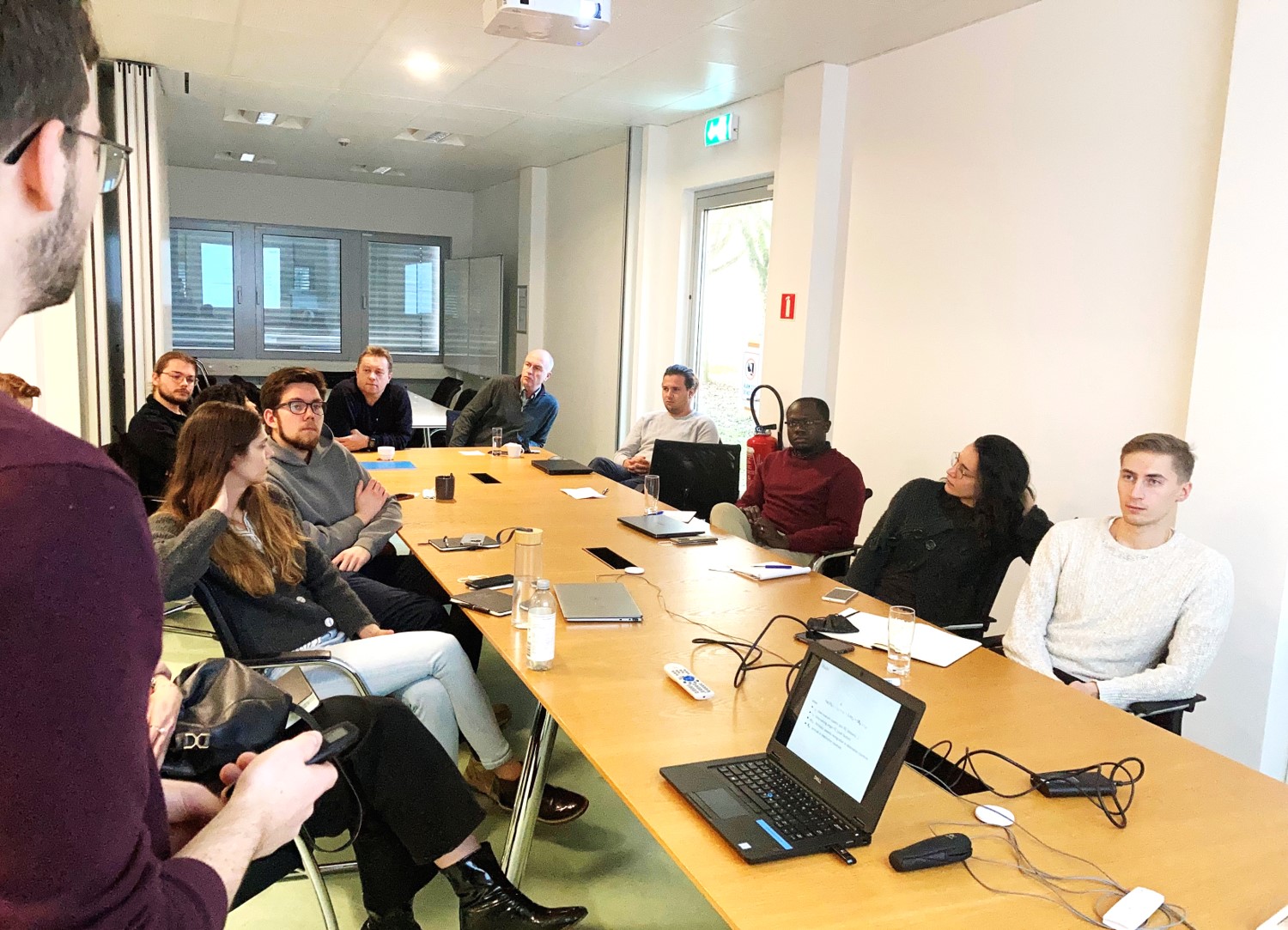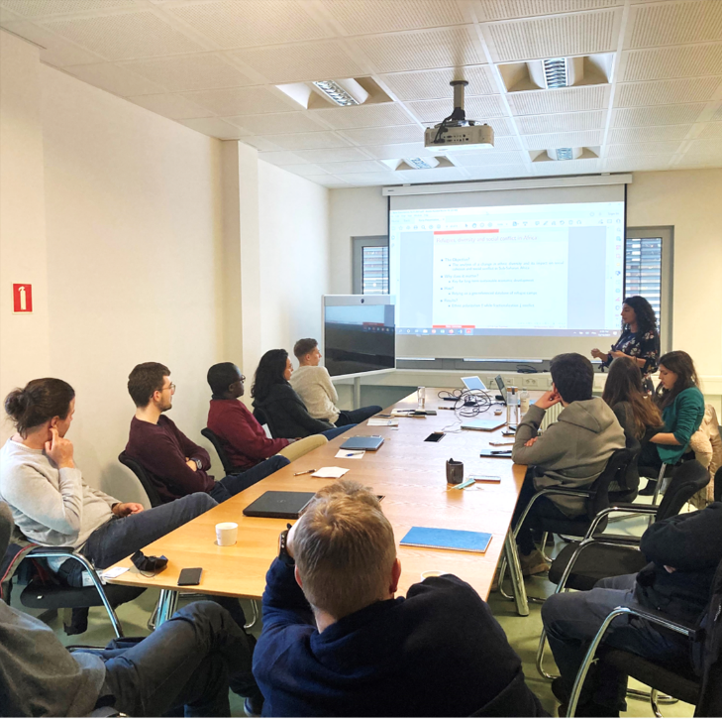On 16 December 2021, the Doctoral School of Economics, Finance and Management has organized a get together event for its MINLAB & ACROSS DTUs students. The students have presented the latest results of their research and have exchanged about it in a casual atmosphere with other students as well as with Prof. Michel Beine, Coordinator of the MINLAB DTU, and Frédéric Docquier, Coordinator of the ACROSS DTU. It was also a nice opportunity to gather and celebrate the end of the year together.
Keep reading for an insight of some of our DTU students work:
« What makes one migration union better than others? Theoretical exploration of quantitative migration models provides an argument in favor of a combination of political and cultural coordination, agglomeration and technologies. »
Nikita Gaponiuk
« In my research, I have been focusing on two main relevant consequences of migration: on one side, I investigated how diversity can foster performance in sports, and on the other I focus on the political economy of migration patterns. In this dimension, one study focuses on the news market and a further study explores a policy on migrants enfranchisement. »
Silvia Peracchi
« This year – the final of my PhD – I worked mostly on two projects: I finalized and submitted a study of future migration to the EU that I co-authored with colleagues from the UN’s International Organization for Migration. I also worked on a study I co-authored for Eurostat in which I examine the impact of immigration on income inequality and polarization.«
Rhea Ravenna Sohst
“I am currently testing the “hum-shaped pattern of migration” using individual level data in Senegal. The idea is to see how relaxing budget constraints of people or improving their wellbeing affects their probability to move internally or internationally. Moreover, I am investigating the interplay between internal and international migration in response to economic shock.”
Narcisse Cha’ngom
“I work on how natives’ reaction to immigration affect potential future immigrants, to understand whether they change their plan to come or if they don’t take it into account”
Etienne Bacher
« The aim of my research is to better understand if faster access to citizenship can foster the integration of immigrants at destination countries and which local pre-conditions at destination countries are central for the integration of immigrants«
Julio Garbers
“Understanding cross-border mobility during the Covid-19 pandemic
Many governments relied on policy measures to limit the social connectivity during the year pandemic year 2020. Yet the importance of these measures for cross-border mobility have not been studied systematically. Using a unique daily mobility dataset on Facebook users we estimate the importance of infection threats and containment policies for the evolution of cross-border flows. Cross-border movements of people predominantly consist of labor commuting flows and business travels. These economic and essential flows are marginally influenced by the fear of infection and international travel bans. Instead, they are mostly governed by the stringency of internal containment policies and the ability to travel.
More information about this research can be found here.«
Felix Stips
“Understanding the consequences of migration on migrant-sending household requires empirical evidence to put the theory to the test. I aim to use novel approaches to investigate how migration affects the wellbeing, economic activity and perceptions of those left behind. “
Ariane Gordan
“My research focusses on human mobility in the context of climate change. Based on a structural model approach, I am interested in the questions which groups of people and regions are most affected by long-term climatic changes, what impact this has on economic and social conditions, and which international and internal migration patterns can be observed.
I have now spent the first few weeks of my PhD working on the first research project by collecting and processing data on internal migration movements.”
Dara Maria Krolpfeifer
“[Our brains] invent some social reality, like citizenship and immigration, that don’t exist in the physical world” (Lisa Feldman Barrett). The dichotomy between the arbitrariness of borders suggested by this quote and the concreteness of cross-border movements’ causes and effects has been a great source of inspiration and one of the motivations behind my decision to join the economics of migration field of research and the ACROSS doctoral training unit. Besides, arbitrariness will play a key role in my PhD thesis, as it does in much empirical economics research. Our understanding of causal relationships in social sciences greatly improved thanks to the implementation of methodologies and designs that exploit natural (or unintended) sources of randomness (which in the economic jargon are called quasi-experimental methods). The first project, which will analyze ethnic and racial discrimination in Luxembourg will rely on the latter. The second project will be about the evaluation of student mobility programs and will combine controlled experiments with quasi-experimental methods.«
Aleksa Uljarevic

